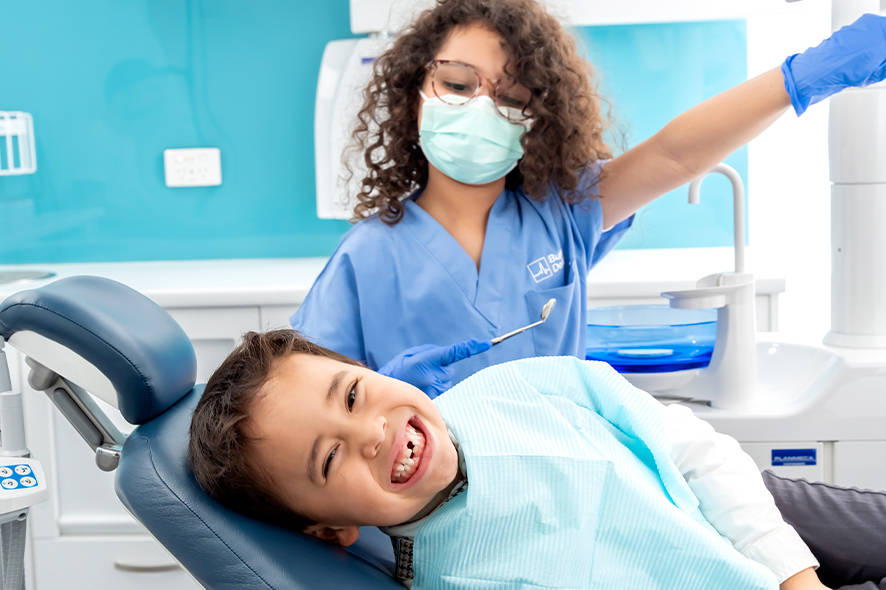They all fall out eventually, but it’s a myth that baby teeth don’t matter – having cavity-free and healthy first teeth is the precursor to having healthy adult teeth.
“Although baby teeth are naturally lost between the ages of 6 to 12, cavities in these teeth due to tooth decay can set up lifelong dental problems all through adulthood,” explains Dr Greg Thomas, a dentist at Bupa Dental in Rochedale, Queensland.
As well as teaching your children how to care for their teeth and gums through brushing, flossing and regular visits to the dentist, there are plenty of other ways parents can give their kids the best chance of having healthy teeth and gums for life.
The impact of childhood tooth decay
More than 40 per cent of Australian children under 10 have experienced tooth decay in their baby teeth, according to a survey of almost 25,000 children across the country. That doesn’t bode well for their future dental health, explains Dr Thomas.
“If an infant or child suffers from moderate to severe tooth decay, as an adult they are more likely to suffer from tooth decay and cavities in their adult teeth,” he says.
Tooth decay is largely considered to be influenced by environmental and lifestyle factors. To help protect your child’s baby teeth:
- Avoid giving them sugary foods and drinks
- Brush your child's teeth as soon as they appear, using a wet cloth or small children's toothbrush. From the age of 18 months your child can use low-fluoride children's toothpaste
- Encourage your child to drink mainly tap water, not soft drinks or juices.
It’s also important not to settle young children to sleep with a bottle of milk or formula. The lactose sugar in milk will stay in the mouth and cause tooth decay as your child sleeps, and there’s not enough saliva flow to mitigate the damage.
“Tooth decay in infants is commonly known as ‘early childhood caries’ or ‘baby bottle caries’ where the baby teeth are exposed to almost a constant source of sugar, causing continued acid attacks on the teeth with little repair, and that leads to rampant tooth decay,” explains Dr Thomas.

Teeth spacing
Another reason to stay on top of your child’s oral healthcare is because decay can affect the alignment of their adult teeth.
“Baby teeth guide the erupting adult teeth into their correct positions,” explains Dr Thomas. “Premature loss of baby teeth due to severe tooth decay can lead to malalignment and crowding of the erupting adult teeth.
“Severe tooth decay in the baby teeth may also lead to infection of the underlying developing adult teeth, with potential damage and even loss of the adult tooth.”
What you can do
As well as guiding your child to adopt healthy oral habits, it’s important to look after your own teeth – remember, those little eyes are always watching.
“Parents can help their children’s lifelong oral health by maintaining good oral health themselves,” says Dr Thomas. “Parents who have a low history of tooth and gum disease generally have children with less dental disease.”
Talk to a dentist near you
If you have any further questions or would like to book your child in for a check up, contact your nearest Bupa dentist.